Education
Explore Gallup's research.

One in five U.S. K-12 teachers struggle financially, driving many to take a second job and increasing burnout and plans to leave the classroom.

About nine in 10 college students are confident that their degree is teaching them career-relevant skills that will help them secure employment.
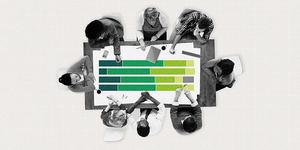
Teachers with meaningful growth opportunities report higher job satisfaction and lower burnout.
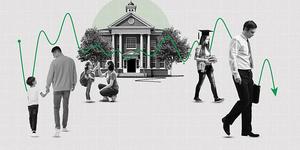
Americans' satisfaction with the quality of K-12 education in the U.S. is at a record-low 35%, and just 26% say it is headed in the right direction.
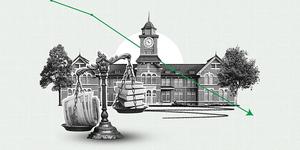
The percentage of Americans who consider a college education "very important" has slipped below the majority level.

College Futures Foundation and Gallup survey Californians without a degree to understand their views on higher education.
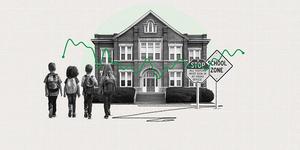
Roughly four in 10 parents have feared for their child's safety at school each of the past four years, the longest such stretch in Gallup's trend since 1998.

Americans haven't changed their minds about President Trump or the economy over the past month, with ratings of both holding at less-than-optimal levels.

Gen Z students are feeling more prepared for and positive about their lives than ever, partly due to a more engaging experience at school.

U.S. adults see math skills as important but value them more for personal life than work. Older Americans are more likely to say math skills are important.

A majority of U.S. parents would prefer their child go to college after high school. College graduates and Democrats highly support this pathway.

Managers anticipate increased hiring of workers with data science skills in the next five years, while almost four in 10 wish current direct reports had more data science skills.

More Americans say they are confident in higher education now than a year ago, the first increase Gallup has measured in the decade-old trend.

Six in 10 teachers use AI tools for their work, and three in 10 are using it at least weekly, saving an estimated 5.9 hours per week.

Students want to learn, but how they learn matters. Active learning, student agency, and real-world skills fuel deeper engagement and future readiness.

U.S. students rate their schools better than in 2023 and 2024, with Black, Hispanic, lower-income and high school students' ratings the most improved.

A new study shows most Gen Z high school students and their parents are largely unaware of the full range of options available after high school.
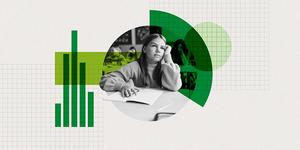
Student engagement in learning is low among Iowa students but can be combated by promoting differentiated learning and student agency.

Explore students' engagement, their sense of self-efficacy, and the connection between student engagement and performance.

A majority of Americans find math challenging, while nearly half say it is interesting. Positive emotions about math vary widely by age and gender.